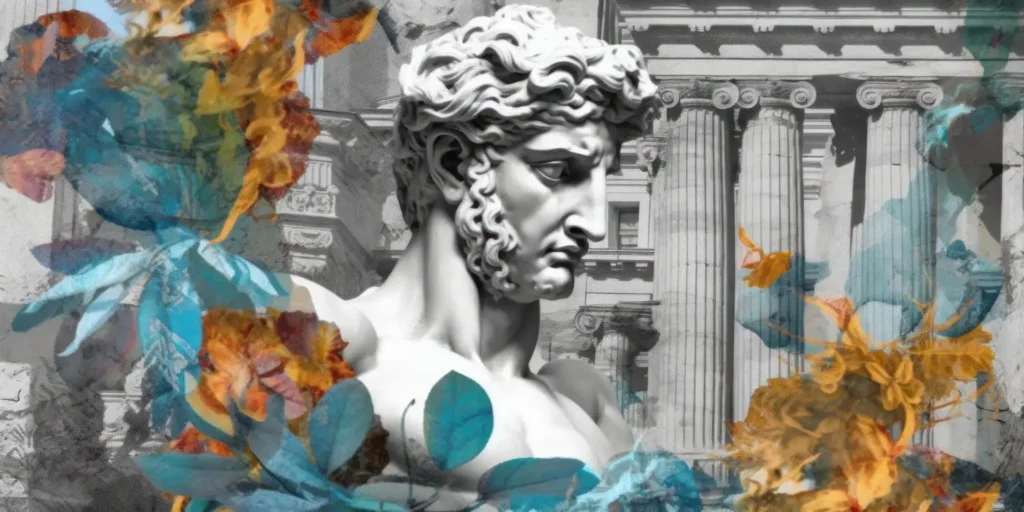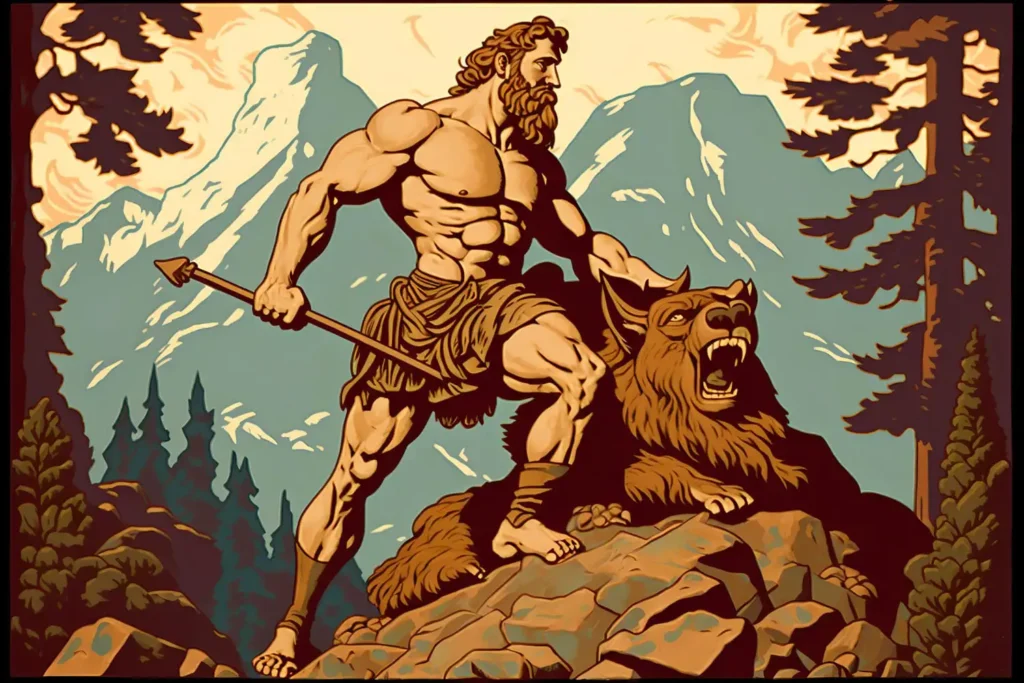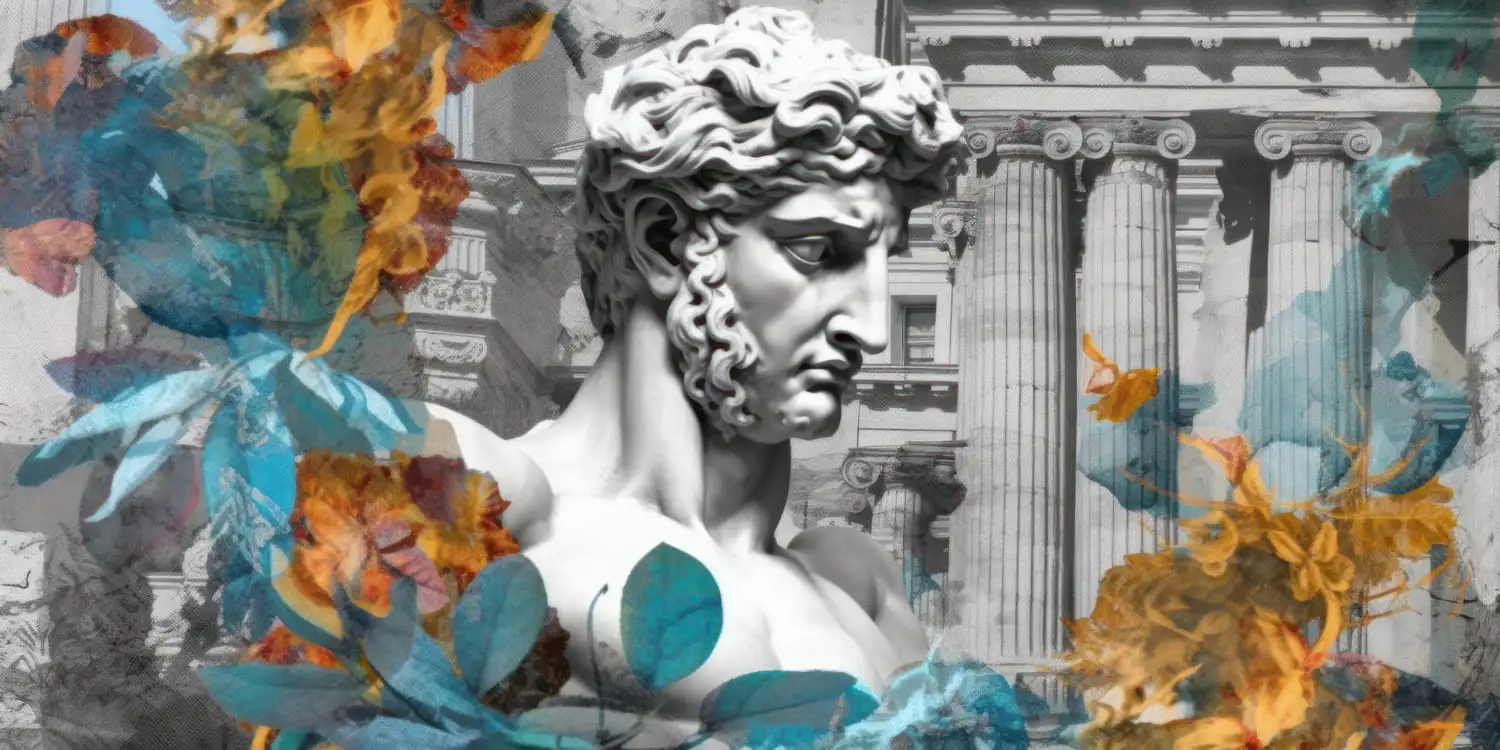Greek mythology is a vast and captivating collection of ancient tales that has fascinated people for centuries, captivating their imaginations and transporting them to a world filled with wonder and enchantment. Rooted in ancient Greece, this rich and diverse collection of stories passed down through generations offers more than just entertainment; it provides a unique glimpse into the beliefs, values, and cultural heritage of the ancient Greeks.
In this blog, we will embark on a journey to explore the depths of classical mythology of greek, delving into its origins, examining its key elements, and unraveling its enduring legacy that continues to resonate with us today.
Table of Contents

Origins & Sources of Greek Mythology
Greek mythology traces its roots back to the ancient Greeks, who believed that the gods and goddesses ruled over every aspect of their lives. These myths were created to explain natural phenomena, human behavior, and the origins of the world.
However, it is important to note that Greek mythology is not a singular creation but rather a culmination of various classical literature influences from earlier civilizations. The beliefs and stories of the Minoan and Mycenaean cultures, among others, formed the foundation upon which Greek mythology was built. As the Greek city-states emerged and flourished, mythology became an integral part of their religious and cultural practices, serving as a way to understand the world around them.
The earliest known written sources are attributed to Homer and Hesiod, who lived in the 8th century BCE and composed works such as “Theogony” and “The Iliad and Odyssey” respectively.
Greek Gods and Goddesses
At the heart of Greek mythology are the gods and goddesses who reign over the heavens and earth. Consisted of a multitude of gods and goddesses, each with their own unique powers, personalities, and domains.
At the head of the pantheon was Zeus, the king of the gods, reside on Mount Olympus. Followed by his siblings Poseidon and Hades. Other notable deities included Hera, Athena, Apollo, Artemis, Aphrodite, Hermes, and Dionysus.
These olympian gods and goddesses were worshiped in ancient greek religion and played significant roles in their daily lives. Each deity represents a different aspect of life and possesses unique powers and characteristics. From goddess Athena, the goddess of wisdom and warfare, to Apollo, the god of music and healing, these gods and goddesses embody the complexities of human existence.
Heroes

Greek mythology is replete with legendary heroes and monsters. Heroes who embarked on daring quests, confront unimaginable obstacles and accomplished extraordinary feats. These heroes possessed exceptional strength, courage, and intelligence. Among the most revered heroes were the mighty son of zeus Heracles (known as Hercules in Roman mythology), the resourceful Perseus, the cunning Odysseus, Theseus, and Achilles.
Their grandiose exploits not only captivate and enthrall audiences, but also serve as conduits for imparting profound moral lessons and delving into the intricacies of the human experience. Through their awe-inspiring tales of conquering adversity and emerging triumphant, these legendary characters have influenced and inspired countless generations to this day, leaving an indelible mark on the collective consciousness of humanity.
Mythological Creatures
The realm of Greek mythology is truly a treasure trove of fascinating tales and enchanting creatures that exist in the space where reality and imagination collide. Often served as obstacles for heroes to overcome, testing their strength and wit, these mythological beings, with their awe-inspiring qualities, bring an extra layer of complexity and allure to the stories, added an element of wonder and danger.
Take, for instance, the majestic Pegasus, a magnificent creature with wings that allow it to soar through the skies with grace and elegance. Its very existence ignites our sense of wonder and transports us to a realm where dreams take flight.
On the other end of the spectrum, we have the fearsome Hydra, a creature with multiple heads that strike fear into the hearts of mortals. The mere thought of this beast invokes a sense of danger and mystery, compelling us to explore the depths of our own fears and confront the unknown.
But it doesn’t stop there. Greek mythology introduces us to a whole array of creatures that possess a unique blend of human and animal attributes. The Centaurs, with their half-human, half-horse forms, embody the delicate balance between civilization and primal instincts. These beings serve as a reminder of the duality within each of us, showcasing the constant struggle between our rational minds and our untamed desires.
And let’s not forget about the Sirens, seductive creatures whose enchanting voices lure sailors to their doom. These alluring beings symbolize the irresistible temptations that we encounter in life, urging us to examine our own weaknesses and confront the consequences of our choices.
The mythological creatures of Greek mythology enhance the narratives with their captivating presence and symbolic significance, leaving us with a deeper understanding of ourselves and the world around us.
Famous Myths and Legends
Greek mythology is renowned for its captivating myths and legends. The story of Prometheus, who stole fire from the gods to give to humanity, highlights the themes of rebellion and the consequences of one’s actions. The tragic tale of Orpheus and Eurydice explores the power of love and the depths of despair. Another well-known myth is the epic journey of Jason and the Argonauts in search of the Golden Fleece. Also not to forget story of the trojan war in troy city and tragedy of gorgon medusa.
Love, betrayal, heroism, and fate are just a few of the themes explored within these myths. These stories continue to captivate readers and provide timeless lessons and entertainment. They serve as cautionary tales or explanations for natural phenomena, providing valuable insights into ancient Greek society and its understanding of the world.
Modern Influence
The influence of Greek mythology can be seen in various aspects of modern society. Its impact can be seen in various aspects of modern culture, art and literature, movies, and even video games. Many words in the English language have their roots in greek world, such as “narcissism” from the myth of Narcissus and “titanic” from the Titans. Greek mythology has also permeated popular culture, with numerous movies, books, and video games drawing inspiration from these ancient tales. The architectural design of prominent buildings, such as the U.S. Capitol in Washington, D.C., often incorporates elements from Greek mythology. Furthermore, the Olympic Games, which originated in ancient Greece, continue to be celebrated today, paying homage to the ancient tradition.
Conclusion
In conclusion, stories from greek mythology remains an enduring treasure trove that continue to captivate audiences around the world. Its stories of gods and heroes offer insights into ancient Greek society while exploring timeless themes that resonate with our own lives. By exploring these ancient stories, we can understanding our own culture and gain a deeper appreciation for our shared human heritage and the power of storytelling across cultures and generations. So let us embrace these ancient tales with wonder and curiosity, discovering new layers of meaning within this mythical realm that has enchanted humanity for millennia.


